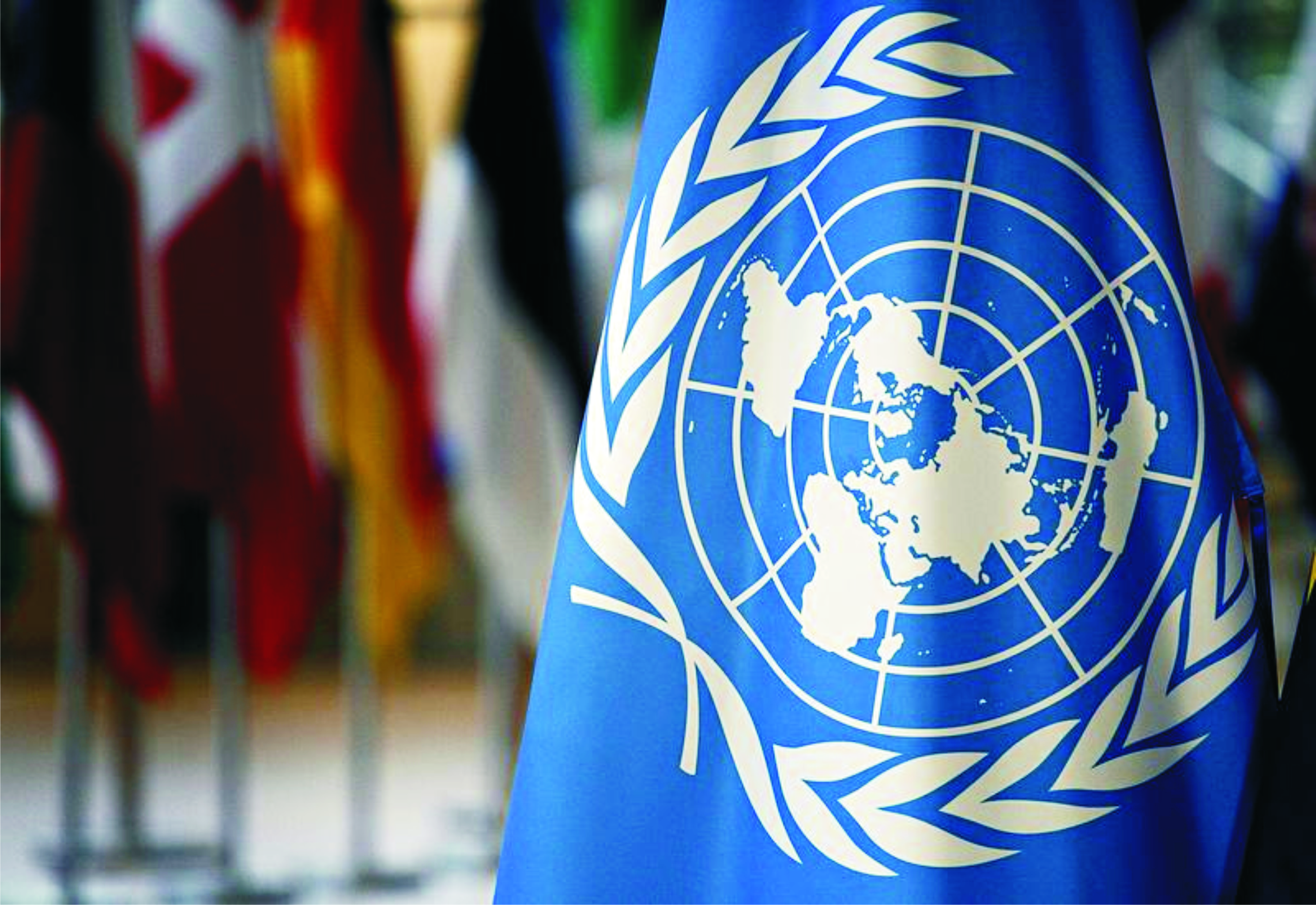Editorial
UN At 75

Since 1948, what started initially as the United Nations Organisation (UNO), but now simply called the United Nations (UN), has marked its yearly anniversary on October 24. It is known as the UN Day, after being so declared in 1947.
Following this tradition, therefore, the 2020 edition was observed last Saturday with the theme, “The Future We Want, The UN We Need: Reaffirming Our Collective Commitment To Multilateralism.”
This year’s theme is obviously an attempt to draw attention to the commitments made by delegates from the 50 original member-countries of the body as they ratified the UN Charter in San Francisco on June 26, 1945 but which came into force on October 24 of that year.
The UN was formed to replace the failed League of Nations and now has 193 member-states.
The UN Day 2020 was considered special as it coincided with the 75th anniversary of the world body established primarily to promote global peace and security.
The actual events for the 75th anniversary were held at a scaled-down special session of the UN General Assembly on September 21 because of the Covid-19 pandemic. In the main, it involved a playback of taped addresses from world leaders.
At that virtual conference, the UN Secretary General, Antonio Guiterres, was reported to have recounted as follows: “The post-war multilateral arrangements have compiled a solid record of service – saving millions of lives, advancing the human condition and fulfilling its cardinal task of preventing World War III.
“But there have been painful setbacks. And today’s realities are as foreboding as ever. Covid-19 has touched everyone, everywhere – precisely the kind of global challenge for which the United Nations was founded.”
Over the years, there have been criticism of the role and function of the UN. There are those who think that the body should have focused only on its main mandate of maintaining world peace and security rather than include a wide range of global concerns.
Others believe that the organisation is overtly being controlled by the five permanent members of its Security Council, namely; United States of America, Britain, France, Russia and China; almost making the other members appear like glorified observers.
Also among these critics are those who accuse the UN of spending so much money to achieve very little result every year.
And, of course, the latest and most devastating of such criticisms came from the present US administration led by President Donald Trump which accused the UN of lacking transparency and resisting, for too long, attempts at introducing real reforms in the global institution.
In fact, the US which is the host country of the UN (headquartered in New York) and its largest single financier, had recently withdrawn funding and co-operation from several of the organisation’s agencies, including the WHO.
On the other hand, it is said that a majority of world leaders and experts, while acknowledging that every organisation has its frailties and shortcomings, had since accepted that the UN plays a critical role not only in peace and security maintenance but also in the improvement of socio-economic conditions around the globe.
The Tide agrees with this latter group but insists that UN member-states identify and expunge whatever cogs still found in the organisation’s wheel of progress. We say so because it is already known that the world body is now facing cash-flow challenges as more countries continue to default in their statutory membership remittances.
Considering that it took only 21 years between the end of World War I in 1918 and the start of World War II in 1939, we think that the UN deserves commendations for holding the world together for 75 years.
There is still work to be done, no doubt. Covid-19 is still on the offensive and must be countered. Therefore, the need for a global collaboration to quickly develop a safe, affordable and accessible vaccine cannot be over-emphasised.
Greater vim needs to be applied to achieve the UN’s 17 Sustainable Development Goals (SDGs) by the target year; just as efforts should be stepped-up in the international collaboration to check climate change, nuclear proliferation, terrorism, wild fires and environmental degradation, among other current global challenges.
While The Tide felicitates with the UN on its second Diamond Jubilee anniversary, we hope that, going forward, no part of the world would be made to suffer from the organisation’s lethargy and outright failures, especially on the scale that was observed in Cambodia, Rwanda, Bosnia, Congo, Iraq, South Sudan and now, Syria.
Like Guiterres said in his message on Saturday, “As we mark the UN’s 75th anniversary, our founding mission is more critical than ever. Let us come together and realise our shared vision of a better world – with peace and dignity for all.”
Editorial
Resolve Rumuwoji Market Issues, Others

Editorial
As NDG Ends Season 2

Editorial
Beginning A New Dawn At RSNC

-

 News4 days ago
News4 days agoAmend Constitution To Accommodate State Police, Tinubu Tells Senators
-

 Politics4 days ago
Politics4 days agoSenate Urges Tinubu To Sack CAC Boss
-
Business4 days ago
Crisis Response: EU-project Delivers New Vet. Clinic To Katsina Govt.
-
Business4 days ago
President Tinubu Approves Extension Ban On Raw Shea Nut Export
-

 News4 days ago
News4 days agoDisu Takes Over As New IGP …Declares Total War On Corruption, Impunity
-
Business4 days ago
Fidelity Bank To Empower Women With Sustainable Entrepreneurship Skills, HAP2.0
-
Business4 days ago
President Tinubu Extends Raw Shea Nuts Export Ban To 2027
-
Sports4 days ago
NDG: Rivers Coach Appeal To NDDC In Talent Discovery

